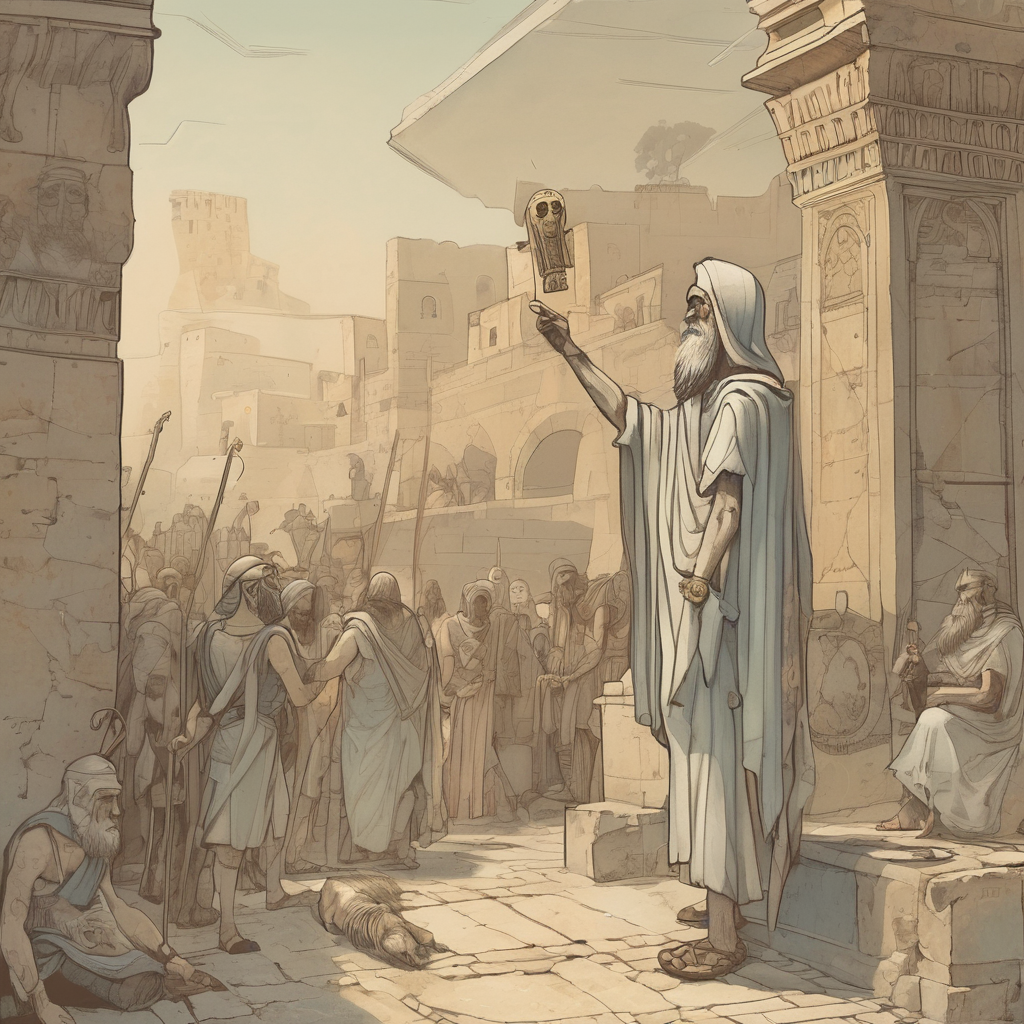
IAMBLICHUS’ LIFE OF PYTHAGORAS, OR PYTHAGORIC LIFE.
https://www.gutenberg.org/files/63300/63300-h/63300-h.htm
Approach ye genuine philosophic few,
The Pythagoric Life belongs to you:
But far, far off ye vulgar herd profane;
For Wisdom’s voice is heard by you in vain:
And you, Mind’s lowest link, and darksome end,
Good Rulers, Customs, Laws, alone can mend.
According to the ancient sources, Pythagoras is said to have studied under several prominent Greek philosophers and sages during his formative years, before embarking on his famous journey to Egypt. Some of the key teachers and influences mentioned include:
Pherekydes of Syros - Pythagoras is reported to have been a student of Pherekydes, who was a respected philosopher on the island of Samos, Pythagoras's birthplace. Pherekydes is believed to have introduced Pythagoras to elements of Orphic and Pythagorean religious and cosmological teachings.
Anaximander - The Milesian philosopher Anaximander is also named as one of Pythagoras's teachers, particularly regarding his mathematical and astronomical studies.
Thales of Miletus - The renowned Ionian philosopher Thales is sometimes cited as having provided early instruction to the young Pythagoras as well.
Egyptian Priests - Pythagoras is said to have been initiated into the secret mysteries and esoteric knowledge of the Egyptian priesthood during his travels in that country, gaining valuable wisdom and insights.
Chaldean Magi - In addition to Egypt, Pythagoras is reported to have traveled to Babylon, where he studied under the Chaldean priestly caste and was introduced to their astrological and mystical traditions.
According to some ancient accounts, the key Egyptian cities associated with Pythagoras's travels and initiation are said to resemble the three main stages of the Pythagorean system of spiritual and philosophical development:
Memphis - This ancient Egyptian capital city is connected to the first stage of Pythagorean initiation, which focused on the purification of the soul through practices like asceticism, music, and mathematics.
Thebes - The city of Thebes is linked to the second stage of Pythagorean teaching, which involved the study of the secrets and mysteries of the cosmos, including astronomy, geometry, and harmonics.
Heliopolis - The city of Heliopolis, home to the famous temple of the sun god Ra, is associated with the third and highest level of Pythagorean initiation. This stage was focused on achieving mystical union with the divine through contemplation and esoteric rituals.
The three stages of Pythagorean initiation and learning did have specific names associated with them, reflecting the connection to the Egyptian cities Pythagoras is said to have visited:
The Purification (Greek: Katharmoi) - This first stage focused on the purification and preparation of the soul through practices like asceticism, music, and mathematical study. It was associated with the city of Memphis in Egypt.
The Science of Nature (Greek: Physike) - The second stage involved the study of the secrets and mysteries of the natural world, including astronomy, geometry, and the mathematical principles underlying the cosmos. This stage was linked to the city of Thebes.
The Inspection (Greek: Epopteia) - The final and most advanced stage was the "Inspection", where initiates were guided towards mystical union and illumination through esoteric rituals and contemplation. This stage was associated with the city of Heliopolis.
These three stages represented a progressive path of spiritual and intellectual transformation, with each building upon the previous one. Students would advance through the levels as they demonstrated their readiness and commitment to Pythagorean teachings.
The use of these specific Greek terms to name the stages highlights how Pythagoras and his followers sought to systematize their philosophical and religious doctrines, drawing inspiration from the wisdom traditions they encountered in Egypt.
This structured approach to initiation and learning was a key characteristic of the Pythagorean community and schools that emerged in ancient Greece under Pythagoras's influence. The tripartite model pointed to an overarching vision of human development and enlightenment.
Comments
Post a Comment